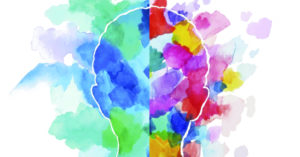A monthly article brought to you by Senior Services Memory Support Programs
 The word “dementia” has become a well known term in our world today. Many people feel that they know exactly what that term means. Often we may hear, dementia is Alzheimer’s disease, dementia means the person cannot understand anything or dementia is memory loss.
The word “dementia” has become a well known term in our world today. Many people feel that they know exactly what that term means. Often we may hear, dementia is Alzheimer’s disease, dementia means the person cannot understand anything or dementia is memory loss.
These common misconceptions are actually myths. So let’s take a moment and really learn what dementia is.
Dementia is a word that is used to describe several different diseases of the brain that affect memory, language skills, visual perception, the ability to focus and pay attention, ability to reason and make decisions and personality or mood changes. We might hear of family members commenting that their loved one cannot figure out how to start the lawn mower when this is something they have been doing most of their life or their long term memory is great but why can’t they remember what they had for lunch? The changes in thinking, attention and/or increased confusion that you have noticed in a person, may actually be the early signs of dementia, especially when they start to interfere with that person’s daily life.
Because there isn’t a consistent pattern to the way individuals are impacted by dementia, some people may have more trouble with their memory while others might have more difficulty with completing a task.
So what causes someone to experience dementia? Simply put, dementia is caused by damage to the brain cells. This can occur from a head injury, a blockage of brain flow or certain types of proteins that build up on and within nerve cells, and interrupt brain functions.
Many people would be surprised to learn that there are over 90 different types of dementia. Oftentimes it is difficult for doctors to be able to make a specific diagnosis because many of the symptoms overlap. Here you will find some of the most common types of dementia.
Alzheimer’s Disease (AD) which is the most common type of dementia
Vascular Dementia
Lewy Body Dementia (LBD)
Parkinson’s Disease Dementia
Frontotemporal Dementia (FTD)
Huntington’s Disease Dementia
Creutzfeldt-Jakob Disease
Normal pressure hydrocephalus (NPH)
Wernicke-Korsakoff Syndrome
Mixed Dementia
Unfortunately most dementia related conditions are progressive, meaning they are likely to worsen. There are medications that are used to improve and alleviate symptoms. Staying socially active, challenging your mind and engaging in physical exercise are very important to push back at changes or to slow the decline of the disease.
When you start to notice memory changes, seeking early detection is key. Senior Services offers an array of memory support programs including confidential memory screenings to obtain a cognitive baseline, an early memory loss program, consultations and educational classes along with support from Seasons Adult Day Health Services. If you or someone you know is experiencing increasing changes with their memory and could benefit from additional services, please contact Amy Sheridan, Family Support and Activity Manager at 989-633-3764.
Check out our section, Our Mind Matters, next month as we will dive into Alzheimer’s Disease.

